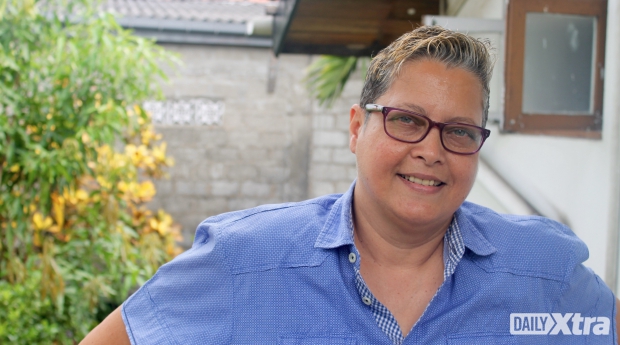Though new government offers some hope, say LGBT activists
“I’m sorry I’m a lesbian,” a Sri Lankan woman says she told her mother, after her sister outed her.
“I was young. I would never say that now,” says the woman, who asked Daily Xtra for confidentiality to avoid the possible repercussions of coming out publicly.
In the small island nation of Sri Lanka, life for LGBT people can be a struggle. Like many other South Asian societies, Sri Lanka is very religious and socially conservative. While there are organizations working to further gay rights here, such as Equal Ground and Heart to Heart, those in the community still regularly experience discrimination, ostracism and even violence.
A remnant of British colonialism, sections 365 and 365a of the Sri Lankan Penal Code criminalize homosexual acts using the terms “carnal knowledge against the order of nature” (365) and “gross indecency” (365a). It’s a crime punishable by up to 10 years in prison.
Initially interpreted as only prohibiting sexual acts between men, the sections were broadened in 1995 in an ironic attempt to be more inclusive and gender-neutral by criminalizing homosexual acts for both men and women.
And yet, this is a country whose capital, Colombo, has hosted Pride celebrations for the last 10 years, albeit without a parade.
Rosanna Flamer-Caldera, executive director of Equal Ground, the non-profit working toward LGBT rights that also organizes Pride, says organizers skip the parade to keep people safe.
Instead, she says, “we hold different events such as fashion drag shows, dramas, workshops, art and photo exhibitions, film festivals, parties and rainbow kite festivals on the beach.”
Over the years, Pride in Colombo has grown from a handful of people to up to 2,000 people attending annually.
“Strangely, no government has yet shut Pride down,” Flamer-Caldera says. “This, I believe, is because we have a strategy to include foreign diplomats and heterosexual allies in all our events, thus making it difficult for the government to shut us down or cause disruption.”
Still, it’s not easy to work on these issues in Sri Lanka, says Jude Fernando, executive director of Heart to Heart, a community organization that supports men who have sex with men, as well as trans women.
The main problem, he believes, is that people are afraid to come out because of the Sri Lankan Penal Code, as well as societal reactions.
“If anything happens, the Penal Code is there,” Fernando says.
Though no one has been convicted under sections 365 or 365a since Sri Lankan independence in 1948, the law still stands as a threat and is used by both state and non-state actors to harass the LGBT community.
Community organizations that distribute condoms have allegedly had their staff harassed by police for promoting homosexuality. Heart to Heart now has an advocacy program with police, educating them about the prevention of HIV/AIDS.
Equal Ground has been under state security surveillance, Flamer-Caldera says.
“Central Intelligence Services, the Criminal Investigation Department actually, raided some of our partner organizations in rural areas. We’ve had our phones tapped and were followed . . . files were taken,” she alleges.Police are also accused of using an old British vagrancy ordinance to prohibit loitering on the street, at an officer’s discretion. Some officers, it’s alleged, are more likely to object to masculine-looking lesbians and trans women found “loitering” in public spaces.
The degree of harassment may differ from urban to rural areas.
Kiru, who asked Daily Xtra to publish only her first name to protect her safety, says she can live relatively openly in Colombo, but back in her home village near Jaffna, she says she would be killed if she were open about her sexuality.
But Flamer-Caldera says Equal Ground has found success hosting workshops and even occasional Pride celebrations in rural parts of the country. She says they explain LGBT issues in terms of human rights, something rural communities may better relate to than Colombo urbanites.
Wherever they live, some LGBT Sri Lankans worry that coming out could cost them their jobs.
“It’s really bad when it comes to work, with family, amongst friends, everywhere. It’s really difficult,” says one woman who asked Daily Xtra not to publish even her first name. Well known in her field of work, the woman worries that if it were publicly known that she preferred women to men, she would be out of a job.
But things are slowly changing for the better, many LGBT Sri Lankans believe.
Like other communities in Sri Lanka, the LGBT community isn’t sure what to expect from the new government that came to power in January 2015 and won a subsequent election in August 2015.
“During the old government, we had a lot of issues,” Flamer-Caldera says. “But the minute the new government has come on board, it has been as though this huge weight has been lifted off of all of our shoulders. I think every single citizen feels that. But for how long?”
Others share her cautious optimism, though they remain wary.
One gay man living in Colombo sees gaining acceptance within Sri Lankan society as the real key to making progress for the LGBT community there.
“More than asking for rights for the LGBT community, we need social acceptance,” says Roshan, who asked Daily Xtra to publish only his first name.
The community has to get stronger and more unified, Roshan says. “Everyone should come together and work together and then maybe we will have acceptance.”
